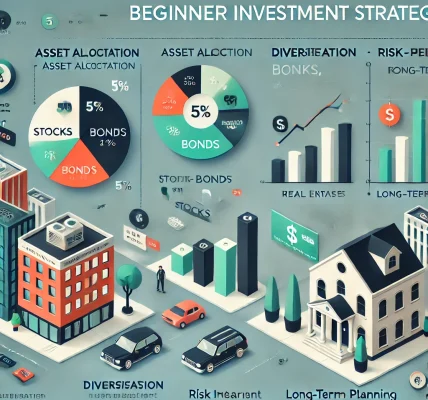Investing in the stock market can be an exciting yet overwhelming experience, especially for beginners. The right online trading platform can make a significant difference in how easily you navigate the stock market, understand trading tools, and make informed investment decisions. This article highlights the best online stock trading platforms for beginners, focusing on user-friendly interfaces, educational resources, affordable fees, and essential trading features.
What to Look for in an Online Stock Trading Platform?
Before diving into the best platforms, here are some key factors beginners should consider:
1. Ease of Use
- A user-friendly interface with simple navigation and an intuitive design is essential.
- Mobile app availability for trading on the go.
2. Low Fees and Commissions
- Look for platforms with low or zero commission fees on trades.
- Check for hidden charges such as account maintenance fees or withdrawal charges.
3. Educational Resources
- Availability of webinars, tutorials, and articles for learning trading basics.
- Demo accounts for practice trading without real money.
4. Customer Support
- 24/7 support through chat, phone, or email can be helpful for beginners.
- Availability of community forums and FAQs for self-help.
5. Security and Regulation
- Ensure the platform is regulated by financial authorities such as SEC, FINRA, or equivalent.
- Two-factor authentication (2FA) and encryption for safe transactions.
Top Online Stock Trading Platforms for Beginners
1. E*TRADE
Best for: Beginners who want an easy-to-use interface and educational content.
Pros:
- Commission-free stock and ETF trades.
- Extensive educational resources for beginners.
- Customizable trading dashboard.
- 24/7 customer support.
Cons:
- Higher margin rates compared to competitors.
- Limited availability of certain international stocks.
2. TD Ameritrade
Best for: New investors looking for strong educational support and research tools.
Pros:
- No commission on stock, ETF, and options trades.
- Advanced trading platform (Thinkorswim) with paper trading.
- Extensive learning resources including videos and articles.
- Strong customer service and community forums.
Cons:
- Complex interface may take time to master.
- High fees on broker-assisted trades.
3. Fidelity
Best for: Long-term investors who want a balanced mix of trading tools and research.
Pros:
- Zero commission fees on stock and ETF trades.
- Industry-leading research and analysis tools.
- No account minimum required.
- Strong reputation and regulatory compliance.
Cons:
- Platform may not be as user-friendly for active day traders.
- Limited options for cryptocurrency trading.
4. Robinhood
Best for: Beginners who want a simple, mobile-friendly trading experience.
Pros:
- Zero-commission trading on stocks, ETFs, and options.
- Easy-to-use mobile app with a simple interface.
- Fractional shares allow investing with small amounts.
- Instant deposits for faster trading.
Cons:
- Limited research tools and educational content.
- No access to mutual funds or bonds.
5. Webull
Best for: Active traders who want commission-free trades and advanced tools.
Pros:
- Commission-free trading on stocks, ETFs, and options.
- Advanced charting tools for technical analysis.
- No account minimum required.
- Paper trading feature for risk-free practice.
Cons:
- Limited customer support options.
- Fewer educational resources compared to competitors.
How to Get Started with Online Trading?
- Choose a Trading Platform – Select a platform based on your needs, fees, and available resources.
- Open an Account – Provide necessary details and complete KYC verification.
- Deposit Funds – Link your bank account and fund your trading account.
- Learn the Basics – Use demo accounts and educational tools to understand trading concepts.
- Start Trading – Begin with small investments and gradually expand as you gain experience.
- Monitor and Adjust – Keep track of market trends and make informed decisions.
Conclusion
Selecting the right online stock trading platform as a beginner is crucial for a smooth investing experience. Platforms like E*TRADE, TD Ameritrade, Fidelity, Robinhood, and Webull offer various benefits tailored for new investors. Consider factors such as fees, educational support, and user experience before making a decision. With the right approach, you can confidently start your journey in the stock market and build a solid investment portfolio.
Disclaimer: This article is for informational purposes only and does not constitute financial advice. Please conduct your own research and consult with a financial professional before making investment decisions.




